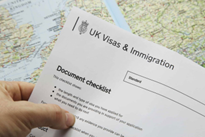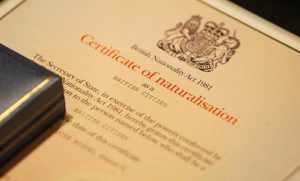Practice
 Below, we have briefly explained some immigration requirements under different categories. But, remember that UK immigration is very complex and changing constantly. Therefore, you must seek legal advice from specialists in UK immigration law and practice. Please take NOTICE that the information given on this website does not substitute any individual advice in a particular case. Consequently, the information contained here is only to pass information to you and should not be relied upon without seeking individual immigration advice from authorised immigration practitioners.
Below, we have briefly explained some immigration requirements under different categories. But, remember that UK immigration is very complex and changing constantly. Therefore, you must seek legal advice from specialists in UK immigration law and practice. Please take NOTICE that the information given on this website does not substitute any individual advice in a particular case. Consequently, the information contained here is only to pass information to you and should not be relied upon without seeking individual immigration advice from authorised immigration practitioners.
1. Working in the UK
 It is always necessary within the immigration rules to get a visa to come to the UK to do any kind of long-term work or business, except for members of the EEC. For some workers, the spouses and children under 18 of people admitted for these purposes will be allowed to come or stay here with them, for the same length of time, provided they can be supported and accommodated without recourse to public funds. New rules for entering or extending leave as a worker in the UK are under the PBS.
It is always necessary within the immigration rules to get a visa to come to the UK to do any kind of long-term work or business, except for members of the EEC. For some workers, the spouses and children under 18 of people admitted for these purposes will be allowed to come or stay here with them, for the same length of time, provided they can be supported and accommodated without recourse to public funds. New rules for entering or extending leave as a worker in the UK are under the PBS.
2. Students

The basic requirements for students are that the applicant must show:
(i) that the course provider is registered with the Department for Education and Skills and is either a publicly funded institution of further or higher education, a bona fide private education institution or an independent fee-paying school.
(ii) ability and intention to follow either a recognised full-time degree course, a weekly full-time course at one institution with a minimum of 15 hours of organised daytime study of one subject or related subjects or a full-time course at an independent fee-paying school.
(iii) enrol for studies which meet the requirements of the Education Act 1944 if under the age of 16.
(iv) that he/she intends to leave the UK at the end of studies.
(v) that one does not intend to engage in business or take employment without the consent of the Secretary of State
(vi) that one can meet the costs of the course and accommodation and maintenance without recourse to employment, business or public funds.
3. UK Graduate Visa
 The UK Graduate Visa allows international students who have completed an eligible UK degree to stay in the UK to work or look for work, for two years (three years for those being awarded doctorates) after they have completed their studies.
The UK Graduate Visa allows international students who have completed an eligible UK degree to stay in the UK to work or look for work, for two years (three years for those being awarded doctorates) after they have completed their studies.
The UK Graduate Visa does not lead directly to settlement, but graduates on the route are able to switch to other work-based routes which can lead to settlement.
UK Graduate Visa Requirements
To qualify for a UK Graduate Visa, you will need to satisfy UK Visas & Immigration that:
(i) You have successfully completed a UK degree or other eligible course.
(ii) You have studied at a Higher Education Provider which is a student sponsor with a track record of compliance.
(iii) You have held permission as a student, which was granted to study the relevant qualification in the UK, for a minimum period of time.
(iv) You are applying from within the UK and have valid leave as a student or Tier 4 Student at the date of application.
(v) You have not previously held permission on the Doctorate Extension Scheme (DES), or the Graduate route.
(vi) You do not fall for refusal on grounds of suitability.
4. Asylum

Qualifying for asylum depends on whether you are a refugee as described in the United Nations 1951 Refugee Convention. It says a refugee is someone who is outside his or her Country of origin because of a well-founded fear of persecution for one of the five reasons:
(i) Race
(ii) Religion
(iii) Nationality
(iv) Membership of a particular social group: anything else that puts you at risk because of the social, cultural, religious or political situation in your country, for example, your gender, gender identity or sexual orientation.
(v) Political opinion
Family Members
You can include your partner and your children under 18 as ‘dependants’ in your application if they’re with you in the UK.
If your application is successful, any dependents named on it can usually stay for the same amount of time as you. They will not get refugee status unless they make their own claim for asylum.
Refugee status means someone is protected by the Refugee Convention. They can, for example, apply for a family reunion or apply for a refugee integration loan.
A refugee must show that they are in real danger and need international protection for one of these reasons. For more details, please click here.
5. Humanitarian protection
Under paragraph 327 of the Immigration Rules, any claim for international protection is treated first as an asylum claim. As such the broad principles that apply to considering asylum claims apply equally to considering whether or not an individual qualifies for humanitarian protection. You must be familiar with the circumstances in which it may be appropriate to grant humanitarian protection where someone does not qualify for refugee status and the asylum interview must address such matters to ensure there is sufficient evidence on which to reach an informed decision.
If granted, humanitarian protection will last for five years, and in the end, one can apply to stay in the UK permanently. People who are granted humanitarian protection can be joined by their husband, or wife registered civil partner, and their children, but have fewer rights to travel and study than refugees who have been granted asylum.
6. Discretionary Leave
Discretionary Leave is one of several policies in place to deal with the type of exceptional case described above. It is intended to be a policy of ‘last resort’, when an applicant is otherwise unable to obtain immigration status in the UK. This means that if an individual qualifies for asylum or humanitarian protection status, they should be granted on that basis and not receive Discretionary Leave.
Many immigration decisions engage a person’s right to respect for private and family life, protected by Article 8 of the European Convention on Human Rights (‘ECHR’). However, Discretionary Leave is not currently intended to cover such cases. Instead, the Home Office has, over the years, tried to incorporate Article 8 considerations into the Immigration Rules themselves. Provision for exceptional circumstances has been included in applications under Appendix FM and Appendix Dependent Relative. Other cases with an Article 8 element are covered by Appendix Private Life.
7. EU, EEA and Swiss Citizens

For those citizens resident in the UK by 31 December 2020, the deadline for applications to be made to the EUSS was 30 June 2021. If you are an EU, EEA or Swiss citizen or their family member who was resident in the UK by 31 December 2020, and you did not make an application to the EUSS by the deadline of 30 June 2021 or do not hold Indefinite Leave to Enter or Indefinite Leave to Remain or a valid UK visa, then your rights, including the right to live, work, study, and access benefits and services in the UK are not protected.
You can still make an application and should do so as soon as possible. There is guidance available for late applications on GOV.UK. Since 1 July 2021, EU, EEA and Swiss citizens and their family members have had to evidence their right to be in the UK through a valid UK immigration status. You can obtain this status through the EUSS, or you can obtain a valid visa under the points-based immigration system. EU, EEA and Swiss citizens can expect to be asked to show their digital immigration status to prove their right to work, or their right to rent to landlords in England. Other departments, such as HMRC, DWP and the NHS, will have automatic access to check a person’s eligibility for free healthcare, benefits and access to public funds. How to access and update your digital immigration status
You can view your EUSS status online, via the view and prove your immigration status service. Individuals with pre-settled or settled status under the EUSS should ensure that they update their online account with all valid travel documents (such as passports or national identity cards) that they hold and intend to use for travel, to avoid any unnecessary delays at the border.
(i) Pending applications
Anyone who made an application to the EUSS by the 30 June 2021 deadline will have their rights protected, pending the outcome of their application. Applicants are issued with a Certificate of Application, which can be relied on to evidence their rights.
A Certificate of Application is accessible to view online, via the view and prove your immigration status service at https://www.gov.uk/government/publications/view-andprove-your-immigration-status-evisa. If you are waiting for your Certificate of Application, the email acknowledging receipt of your application explains how prospective employers and landlords can request information about your right to work and rent from the Employer or Landlord Checking Services.
(ii) Switching from pre-settled status to settled status.
If you hold pre-settled status, you can apply to switch to settled status as soon as you’re eligible. This is usually after you’ve lived in the UK, the Channel Islands or the Isle of Man for 5 years in a row (known as ‘continuous residence’). You do not need to have held pre-settled status for 5 years before you can apply to switch to settled status. To switch, you must apply to the EUSS again before your pre-settled status expires. For further information visit www.gov.uk/settled-status-eu-citizens-families/switch-from-presettled-status-tosettled-status.
(iii) Joining family members.

Family members of any nationality of EU, EEA or Swiss citizens who were resident in the UK by 31 December 2020, can apply to the EUSS at any time, where the family relationship was formed by 31 December 2020 (except where a child was born or adopted after it) and continues to exist.
They may be able to apply to the EUSS from outside the UK or they may need to apply for an EUSS family permit to come to the UK and then apply to the EUSS once here.
For those citizens resident in the UK by 31 December 2020, the deadline for applications to be made to the EUSS was 30 June 2021. If you are an EU, EEA or Swiss citizen or their family member who was resident in the UK by 31 December 2020, and you did not make an application to the EUSS by the deadline of 30 June 2021 or do not hold Indefinite Leave to Enter or Indefinite Leave to Remain or a valid UK visa, then your rights, including the right to live, work, study, and access benefits and services in the UK are not protected.
You can still make an application and should do so as soon as possible. There is guidance available for late applications on GOV.UK. Since 1 July 2021, EU, EEA and Swiss citizens and their family members have had to evidence their right to be in the UK through a valid UK immigration status. You can obtain this status through the EUSS, or you can obtain a valid visa under the points-based immigration system. EU, EEA and Swiss citizens can expect to be asked to show their digital immigration status to prove their right to work, or their right to rent to landlords in England. Other departments, such as HMRC, DWP and the NHS, will have automatic access to check a person’s eligibility for free healthcare, benefits and access to public funds. How to access and update your digital immigration status
You can view your EUSS status online, via the view and prove your immigration status service. Individuals with pre-settled or settled status under the EUSS should ensure that they update their online account with all valid travel documents (such as passports or national identity cards) that they hold and intend to use for travel, to avoid any unnecessary delays at the border.
8. Indefinite Leave to Remain
Indefinite leave to remain is how you settle in the UK. It’s also called ‘settlement’. It gives you the right to live, work and study here for as long as you like, and apply for benefits if you’re eligible. You can use it to apply for British citizenship.
There are different ways to apply for indefinite leave to remain based on your circumstances.
9. Naturalisation
 There are legal requirements to apply for naturalisation, some of which have changed under The Nationality and Borders Act 2022. In particular, the requirements for lawful residence are now easier to demonstrate.
There are legal requirements to apply for naturalisation, some of which have changed under The Nationality and Borders Act 2022. In particular, the requirements for lawful residence are now easier to demonstrate.
Becoming a British citizen is a significant life event. Apart from allowing you to apply for a British citizen passport, British citizenship gives you the opportunity to participate more fully in the life of your local community. However, naturalisation is not an entitlement. It is a matter of law as set out in the British Nationality Act 1981. The Home Secretary may exercise discretion to naturalise you only if you satisfy a number of statutory requirements. This guide helps you to understand them. It may be possible to grant your application even if you are not able to meet all of the requirements, but this cannot be done in all cases.
10. Immigration Appeal
You can appeal to the First-tier Tribunal (Immigration and Asylum Chamber) if the Home Office has decided to:
(i) refuse your protection claim (also known as ‘asylum claim’ or ‘humanitarian protection’)
(ii) revoke your protection status
(iii) refuse your human rights claim
(iv) refuse you a residence document or deport you under the Immigration (European Economic Area) Regulations 2016
(v) revoke your British citizenship
(vi) refuse or revoke your status, vary the length or condition of your stay, or deport you under the EU Settlement Scheme
(vii) refuse or revoke your travel permit or family permit under the EU Settlement Scheme or restrict your rights to enter or leave the UK under those permits
(viii) refuse or revoke your permit, or deport you if you’re a frontier worker
(ix) refuse or revoke your leave, or deport you if you’re an S2 healthcare visitor

